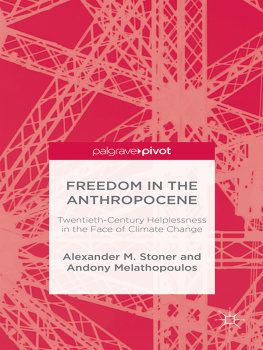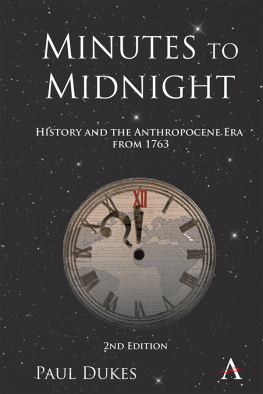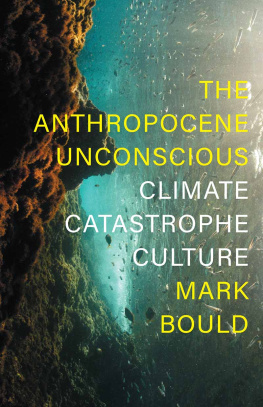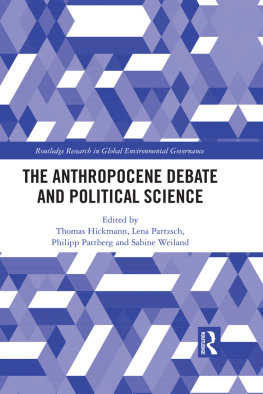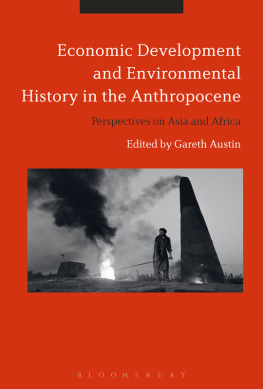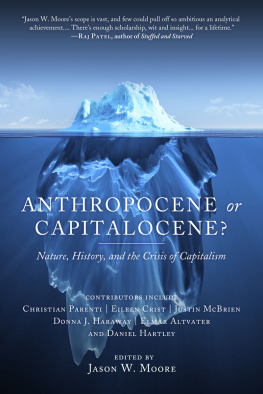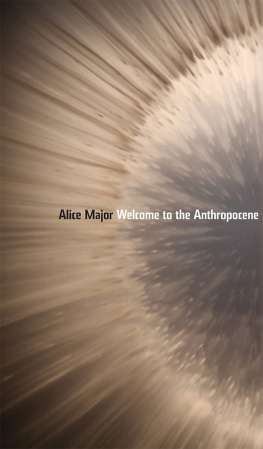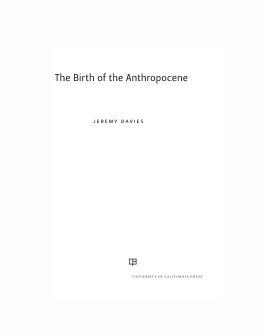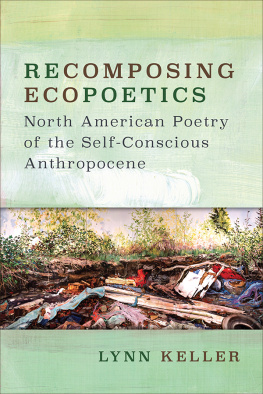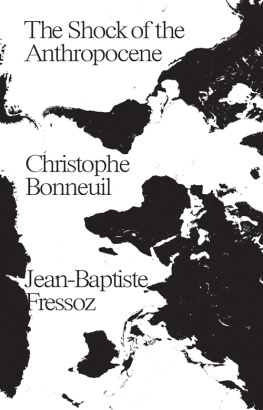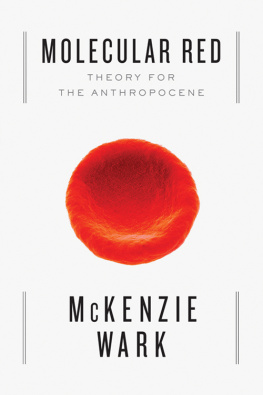Freedom in the Anthropocene
Other Palgrave Pivot titles
Christine J. Hong: Identity, Youth, and Gender in the Korean American Christian Church
Cenap akmak and Murat Ustaolu: Post-Conflict Syrian State and Nation Building: Economic and Political Development
Richard J. Arend: Wicked Entrepreneurship: Defining the Basics of Entreponerology
Rubn Arcos and Randolph H. Pherson (editors): Intelligence Communication in the Digital Era: Transforming Security, Defence and Business
Jane Chapman, Dan Ellin and Adam Sherif: Comics, the Holocaust and Hiroshima
AKM Ahsan Ullah, Mallik Akram Hossain and Kazi Maruful Islam: Migration and Worker Fatalities Abroad
Debra Reddin van Tuyll, Nancy McKenzie Dupont and Joseph R. Hayden: Journalism in the Fallen Confederacy
Michael Gardiner: Time, Action and the Scottish Independence Referendum
Tom Bristow: The Anthropocene Lyric: An Affective Geography of Poetry, Person, Place
Shepard Masocha: Asylum Seekers, Social Work and Racism
Michael Huxley: The Dancers World, 19201945: Modern Dancers and Their Practices Reconsidered
Michael Longo and Philomena Murray: Europes Legitimacy Crisis: From Causes to Solutions
Mark Lauchs, Andy Bain and Peter Bell: Outlaw Motorcycle Gangs: A Theoretical Perspective
Majid Yar: Crime and the Imaginary of Disaster: Post-Apocalyptic Fictions and the Crisis of Social Order
Sharon Hayes and Samantha Jeffries: Romantic Terrorism: An Auto-Ethnography of Domestic Violence, Victimization and Survival
Gideon Maas and Paul Jones: Systemic Entrepreneurship: Contemporary Issues and Case Studies
Surja Datta and Neil Oschlag-Michael: Understanding and Managing IT Outsourcing: A Partnership Approach
Keiichi Kubota and Hitoshi Takehara: Reform and Price Discovery at the Tokyo Stock Exchange: From 1990 to 2012
Emanuele Rossi and Rok Stepic: Infrastructure Project Finance and Project Bonds in Europe
Annalisa Furia: The Foreign Aid Regime: Gift-Giving, States and Global Dis/Order

Freedom in the Anthropocene: Twentieth-Century Helplessness in the Face of Climate Change
Alexander M. Stoner
Salisbury University, USA
and
Andony Melathopoulos
Dalhousie University, Canada


FREEDOM IN THE ANTHROPOCENE
Copyright Alexander M. Stoner and Andony Melathopoulos, 2015.
All rights reserved.
First published in 2015 by
PALGRAVE MACMILLAN
in the United Statesa division of St. Martins Press LLC,
175 Fifth Avenue, New York, NY 10010.
Where this book is distributed in the UK, Europe and the rest of the world, this is by Palgrave Macmillan, a division of Macmillan Publishers Limited, registered in England, company number 785998, of Houndmills, Basingstoke, Hampshire RG21 6XS.
Palgrave Macmillan is the global academic imprint of the above companies and has companies and representatives throughout the world.
Palgrave and Macmillan are registered trademarks in the United States, the United Kingdom, Europe and other countries.
ISBN: 9781137503886 EPUB
ISBN: 9781137503886 PDF
ISBN: 9781137503879 Hardback
Library of Congress Cataloging-in-Publication Data is available from the Library of Congress.
A catalogue record of the book is available from the British Library.
First edition: 2015
www.palgrave.com/pivot
DOI: 10.1057/9781137503886
Contents
List of Illustrations
Figure
Photos
Acknowledgments
The decision to write a book on the meaning of freedom in the Anthropocene was motivated by our felt need to expand upon and write about a panel series we helped develop for the Platypus Affiliated Society titled Freedom in the Anthropocene, which was held in London, Chicago, Toronto, and Halifax (Canada) during winter 2013/spring 2014. Only after thinking through the discussions and debates elicited from this panel series did it become clear to us that it is not possible to conceive of the Anthropocene independent of history and freedom. This situation sparked an interest in wanting to examine how the very recent recognition of the Anthropocene in just the past decade is connected to the widespread helplessness that comes at the close of the twentieth century regarding the capacity of society to self-consciously transform itself. A.P.M., in particular, owes a debt of gratitude to several pieces published in the Platypus Review, most prominently Decline of the Left in the Twentieth Century and the Capital in History: The Need for a Marxian Philosophy of History of the Left, as well as the year-long primary Platypus reading group.
A.M.S. would like to thank the Sociology Graduate Student Association at the University of KansasLawrence, and Shane Wilson, in particular, for the opportunity to present the first version of our argument in an invited talk entitled Critique of/in the Anthropocene, prepared for the Annual Graduate Student-Sponsored Lecture Series at University of KansasLawrence, February 2014. Earlier versions of our argument were also presented at the Thirteenth Annual International Social Theory Consortium Conference, University of TennesseeKnoxville, entitled Globalization, Critique, and Social Theory: Navigating the Divide between Theory and Practice, Knoxville, Tennessee, May 2014, and at the 109th Annual American Sociological Association Conference, San Francisco, California, August 2014.
We are grateful to Andrew Biro, Harry F. Dahms, and Eric R. Lybeck, whose comments and criticism on earlier versions of this work helped us clarify our ideas further. We thank Laurel Schut for her feedback on the Prologue and Sarah Alford for coming up with the title for the Prologue. A.M.S. would like to thank Harry F. Dahms, in particular, as many of the theoretical ideas developed in this work were first planted in a doctoral dissertation, entitled Sociobiophysicality, Cold War, and Critical Theory: Human-Ecological Transformation and Contemporary Ecological Subjectivity, authored by A.M.S. (University of TennesseeKnoxville, 2013) under his supervision.
(pg. 63) available under Creative Commons licensing.

Prologue: Smog, Haze, Sulfur: The Elusive Clarity of the Anthropocene
Abstract:This chapter highlights the complex interrelationship between global environmental problems and modern forms of social organization by discussing three examples: (1) the Great London Smog (1952); (2) Southeast Asian Haze (2013); and (3) sulfur in the stratosphere (1815 and the future). In doing so, we illustrate the ways in which seemingly objective laws of modern society undermine efforts to ameliorate societally induced environmental degradation. We conclude by situating the Anthropocene proposal in relation to our current inability to take hold of the runaway character of socioecological development.
Next page
